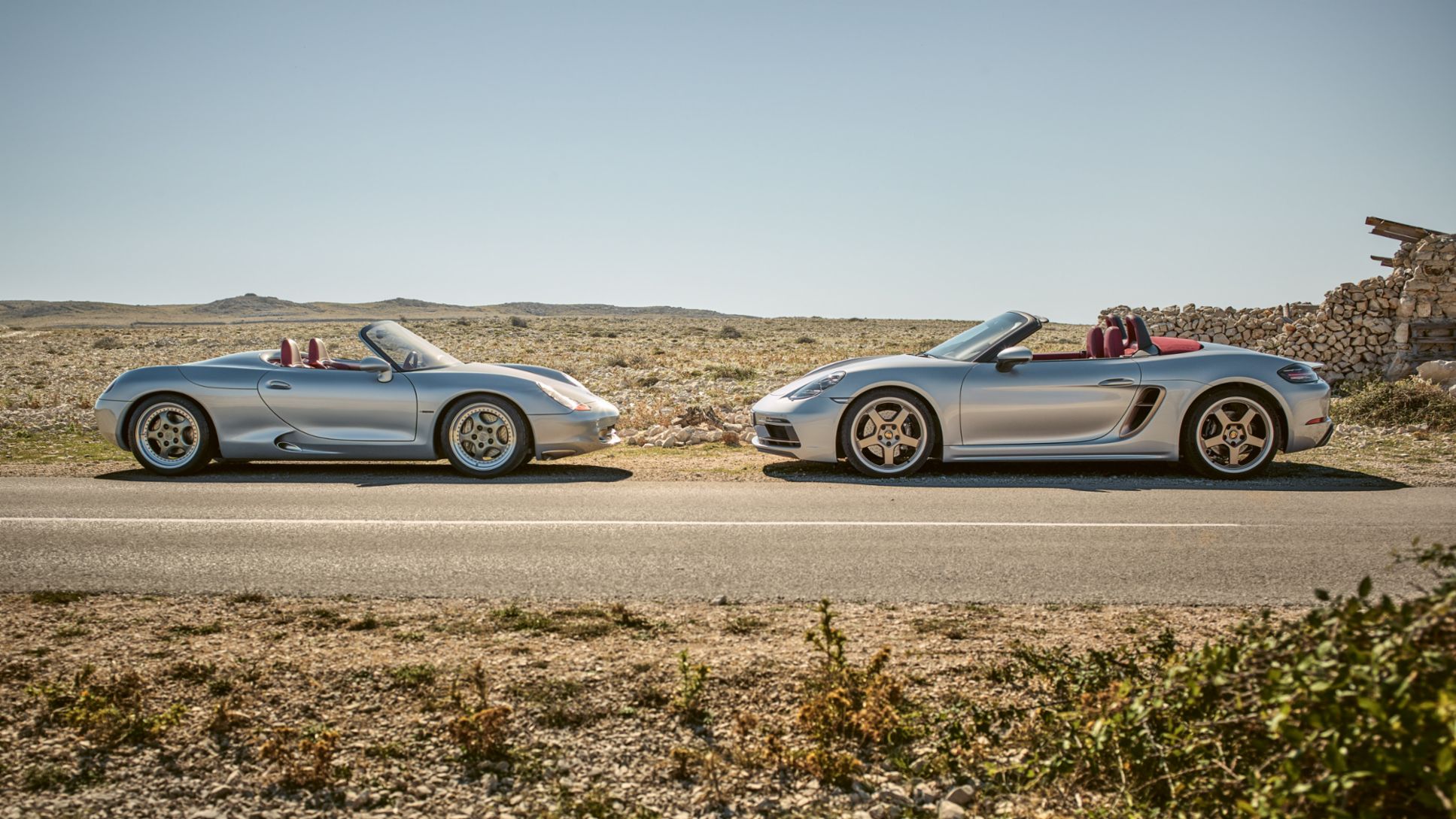This gave the sports car manufacturer a good reason to launch an anniversary model, the Boxster 25 years, limited to 1,250 vehicles around the world.
25 years of the Porsche Boxster
The year under review began with an anniversary, the 25th birthday of the Porsche roadster family. This gave the sports car manufacturer a good reason to launch an anniversary model, the Boxster 25 years, limited to 1,250 vehicles around the world. This new edition is based on the 294 kW (400 PS) GTS 4.0 model with a four-litre six-cylinder boxer engine. The car includes numerous design features taken from the Boxster study that heralded the success story of the open two-seater at the Detroit Motor Show in 1993. The production version was rolled out in 1996. With this model line, Porsche broadened its model diversity. The agile mid-mounted engine roadster was entirely new, as was the water-cooled six-cylinder production boxer engine, which subsequently also featured in the iconic 911 in 1997. This marked the beginning of a new era, with a shift from air cooling to water cooling.
Partnership with TAG Heuer
Porsche and the Swiss luxury watchmaker TAG Heuer announced a strategic brand partnership in February. Both companies are long-standing brands with the highest expectations of quality regarding their products – Heuer created the very first chronograph; Ferdinand Porsche constructed an innovative electric wheel hub motor more than 120 years ago; Heuer received recognition at the 1889 world’s fair, as did the first Lohner-Porsche Electromobile at the 1900 Paris Exposition. In a nod to the motorsport history they have in common, Porsche and TAG Heuer intend to collaborate on various topics in the future. They started by presenting a new watch, the TAG Heuer Carrera Porsche Chronograph.
Entry-level Taycan with rear-wheel drive
A fourth version of the all-electric Taycan sports car was introduced in January 2021. The Taycan with rear-wheel drive is delivered with a Performance Battery as standard with capacity of 79.2 kWh. A Performance Battery Plus with capacity of 93.4 kWh is also available upon request. Its range in accordance with WLTP is up to 431 kilometres with the small battery and up to 484 kilometres with the large battery. The new entry-level model boasts aerodynamically optimised 19-inch Taycan Aero wheels and black anodised brake callipers. The nose underside, the side skirts and the rear diffuser are likewise black. It features LED main headlights as standard.
New 911 GT family member
A new member of the Porsche GT family celebrated its premiere in February, in Porsche’s online format NewsTV. Model Line Vice President Frank-Steffen Walliser, Vice President GT Cars Andreas Preuninger and the Porsche brand ambassadors Walter Röhrl and Jörg Bergmeister presented the 911 GT3, the first GT model based on the latest generation of the Porsche 911 (992). Its development focused on motorsport and the transfer of technology from the racetrack to the road. The new GT3 boasts significantly improved performance coupled with greater comfort. The innovative rear wing originated on the successful GT racing car 911 RSR, while the 375 kW (510 PS) four-litre six-cylinder boxer engine is based on the engine of the 911 GT3 R which has been put through its paces in endurance racing. The model range was completed in June by the GT3 with Touring Package – a model version that does without the fixed rear wing and which is committed to understatement.
Three start-up sponsorships
In February, Porsche once again took on the sponsorship of various start-up companies at the ninth Expo Day of the innovation platform Startup Autobahn. The start-ups SevenD and Visometry, for example, have programmed a digital alternative to the traditional user manual. Augmented reality technology allows users to interactively familiarise themselves with the Taycan step by step. Porsche has been a partner of Startup Autobahn, the innovation platform in the field of mobility, since 2017.
339,000 euros in aid for sports clubs
Porsche donated 339,000 euros to the regional sports federations of Baden-Württemberg and Saxony as swift support for sports clubs. Thirty-eight sports practised at 113 clubs benefited. Each club was awarded immediate aid of 3,000 euros, the purpose of the funds being to help maintain sporting activities during the coronavirus pandemic. In selecting the clubs, the two regional sports federations gave positive recognition of the fact that the clubs were offering young sportspeople alternative services during the pandemic, such as digital exercise videos, live streams and virtual contests. The clubs selected also focus in particular on youth work, integration or inclusion and represent both recreational and competitive sport. Supporting the clubs in their youth sport work in difficult times is a matter close to Porsche’s heart. Children and young people need to be enthusiastic about their sport and club life during the coronavirus pandemic too.
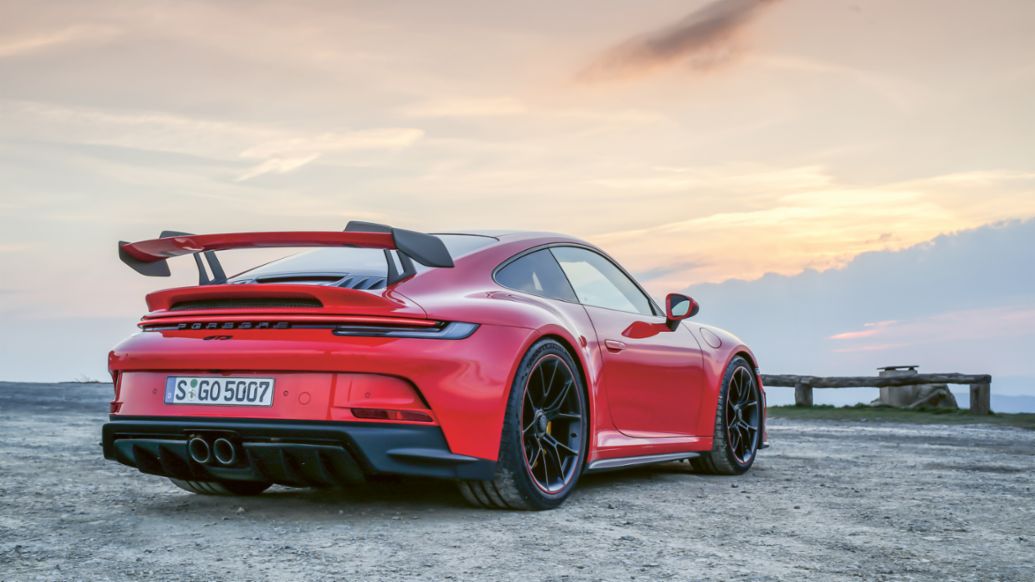
Artificial intelligence for sustainability goals
Porsche, Audi and Volkswagen are championing greater supply chain transparency. An algorithm developed by the Austrian start-up Prewave identifies supplier-related news sourced from publicly accessible media and social networks in more than 50 languages and from over 150 countries and evaluates it. This enables sustainability risks such as environmental pollution, human rights violations and corruption to be forecast not only in relation to Porsche’s direct business partners, but also lower down in the supply chain. If there is any indication of relevant risks, the companies are notified. The case is then examined by Porsche’s Procurement department. Artificial intelligence is used as a proactive early-warning system. Since the launch of the pilot project in October 2020, Porsche, Audi and Volkswagen have primarily been monitoring direct suppliers as well as a selection of indirect suppliers. In total, there are currently more than 4,000 suppliers involved.

More than 180 Porsche employees from the field of IT and from Porsche Digital volunteered as a task force in the Digital Turbo for Schools initiative.
Digital Turbo for Schools
Porsche supported schools in Baden-Württemberg and Saxony with a comprehensive aid programme in the midst of the coronavirus Iockdown in March. Porsche Consulting experts started by visiting various types of school to examine them and then categorised them as four different types – “analogue stragglers”, “committed developers”, “resolute catcher-uppers” and “digital trailblazers”. The Digital Turbo for Schools initiative focused on the first three categories. Schools which were interested could apply for the aid programme. Porsche Consulting provided 15 schools in Baden-Württemberg and Saxony with up to 10 support days. The aid programme includes maturity level analysis, emergency aid and medium- and long-term planning. More than 180 Porsche employees from the field of IT and from Porsche Digital volunteered as a task force, contributing their knowledge to local schools.
In memory of Porsche old hand Rolf Sprenger
Rolf Sprenger passed away on 24 February 2021 aged 77. Sprenger played a special role in the world of Porsche which is abundant in individualists and specialists, one-of-a-kinds and non-conformists – he became a service provider long before the term became ubiquitous. Ferry Porsche once personally commissioned him to offer customers from all over the world assistance regarding technical matters and requests for special features. In 1978, Rolf Sprenger established a programme that enabled customers to configure the chassis, engine, body and interior of their very own sports car. This now goes by the name of Porsche Exclusive Manufaktur. It is people like Rolf Sprenger who set Porsche apart in terms of technical excellence and diversity. And it was Rolf Sprenger’s pronounced technical expertise that paved the way for many unique Porsche vehicles.
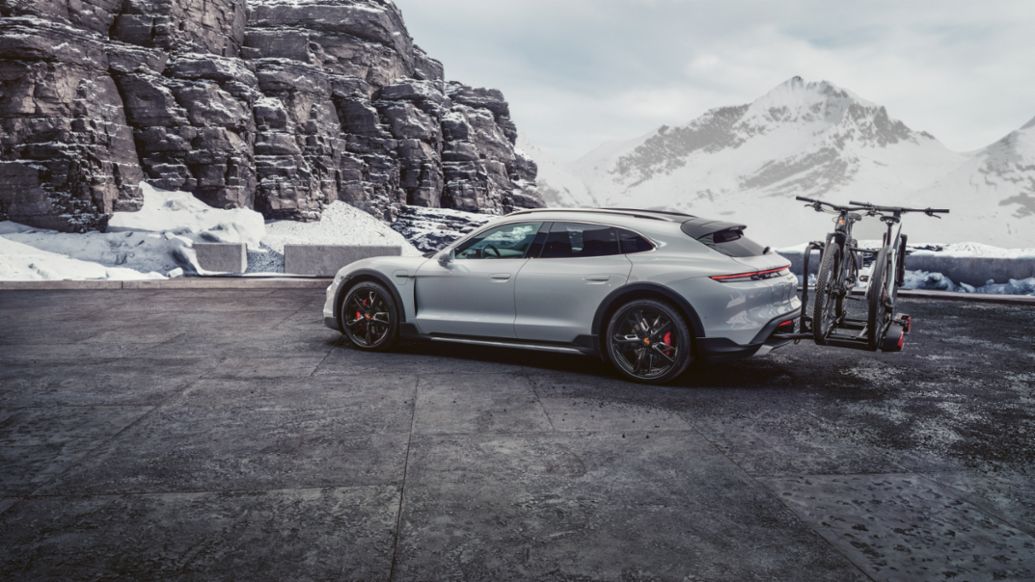
World premiere of the Taycan Cross Turismo
In March 2021, Porsche unveiled the Taycan Cross Turismo, the all-rounder among electric sports cars. Like the Sport Saloon Taycan, the Cross Turismo features the innovative 800-volt electric powertrain. All-wheel drive and adaptive air suspension offer driving pleasure off-road too. Back-seat passengers enjoy up to 47 millimetres more headroom. It has a load capacity of 1,200 litres behind the large tailgate. Its silhouette is defined by the sporty roofline that slopes down to the rear, which the Porsche designers have christened the “flyline”. The model family ranges from the Taycan 4 Cross Turismo with 280 kW (380 PS) to the Taycan Turbo S Cross Turismo with 460 kW (625 PS). With the Taycan Cross Turismo model version, Porsche is expanding the portfolio of its first all-electric sports car model series and is systematically continuing on its path of sustainable mobility.
Porsche increases stake in Rimac Automobili
Porsche increased its stake in Rimac Automobili from 15 to 24 per cent. The Croatian company develops and produces high-tech electromobility components, including high-performance powertrains and battery systems. It also manufactures electric super sports cars. Porsche first invested in the young technology and sports car company in 2018 and increased its stake in the company to 15 per cent in September 2019. The company is now investing a further 70 million euros. Based in Sveta Nedelja near Zagreb, Rimac Automobili has a workforce of just under 1,000 and develops and manufactures super sports cars with up to 2,000 PS and top speeds of more than 400 km/h. The company founded by Mate Rimac in 2009 also supplies technologies and systems to a number of renowned manufacturers of electric cars.
Porsche took second place in the Women Career Index, a management tool for the advancement of women in business. It recognised Porsche as an employer that very much promotes women.
Second place in Women Career Index
Porsche took second place in the Women Career Index (FKI), a management tool for the advancement of women in business. It recognised Porsche as an employer that very much promotes women. The Women Career Index jury rates Porsche’s mix of measures as exemplary, be it job sharing (including in managerial positions), flexible working time models, mentoring, a women’s network, regular internal and external communication, maximum individualised HR development, transparent targets or numerous diversity initiatives.
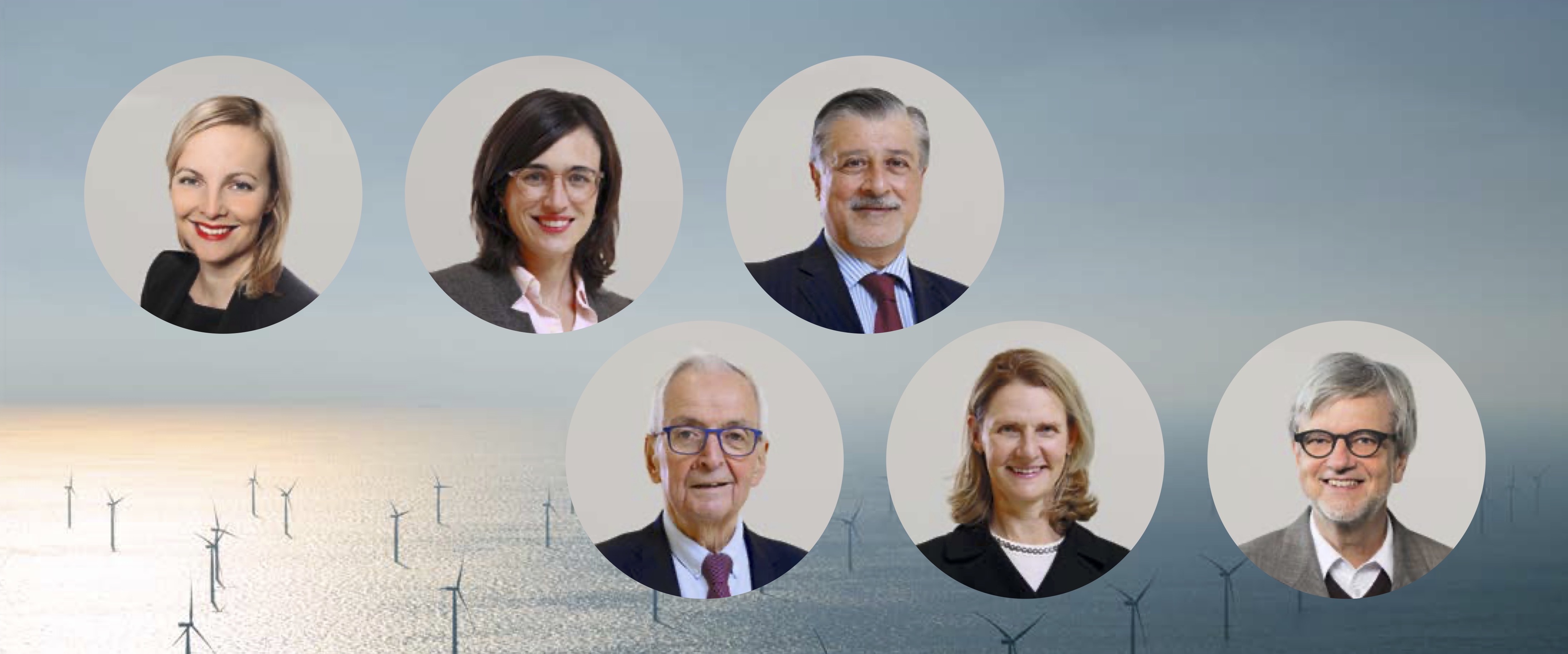
Porsche expanded its Sustainability Council from five to six members. Sarah Jastram, Raffaela Rein and Adnan Amin joined the advisory body at the beginning of the year.
Sustainability Council strengthened
Sarah Jastram, Raffaela Rein and Adnan Amin have been strengthening Porsche’s Sustainability Council since the beginning of the year, since when they have been collaborating with the renowned experts Klaus Töpfer and Ortwin Renn. Lucia Reisch, a professor at Copenhagen Business School, acts as spokesperson. In this context, Porsche has expanded the advisory body from five to six members. Nicola Leibinger-Kammüller, Chairwoman of the Management Board of the mechanical engineering company Trumpf, additionally attends the meetings and contributes her many years of business experience.
Porsche further expanded the advisory council’s business expertise with the addition of economist Sarah Jastram, Professor of International Business Ethics and Sustainability at the Hamburg School of Business Administration, and businesswoman Raffaela Rein, who has founded multiple companies and is a German Startups Association board member. The Kenyan diplomat Adnan Amin contributes broad international experience in the area of energy policy. He is a Senior Fellow at Harvard University and has 20 years of experience under his belt with the United Nations and as Director-General of the International Renewable Energy Agency.
Target of balance-sheet CO₂ neutrality in 2030
Sustainability is a pillar of Porsche’s Strategy 2030. For Porsche, the term “sustainability” encompasses economics, the environment and social affairs. In the area of the environment, the sports car manufacturer has launched an extensive decarbonisation programme with a clear target – Porsche is to achieve balance-sheet CO₂ neutrality across the entire value chain by 2030. The major operations in Zuffenhausen, Weissach and Leipzig have been balance-sheet CO₂-neutral since early 2021. Porsche has earmarked more than a billion euros for decarbonisation alone over the next 10 years. The company is gradually avoiding and reducing CO₂ emissions throughout the value chain. A residual proportion of emissions that cannot be avoided will be offset. The Taycan Cross Turismo is the first vehicle designed to be balance-sheet CO₂-neutral throughout its service life.
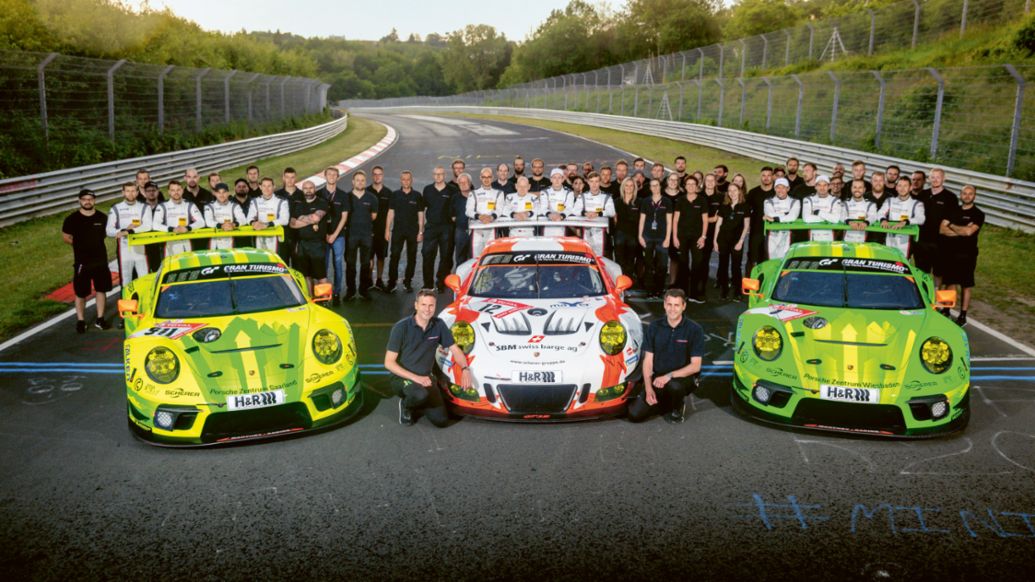
The update fine-tunes the driving dynamics, introduces new smart charging functions and expands Porsche Communication Management (PCM).
25 years of Manthey-Racing
In March, Porsche congratulated Manthey-Racing on its 25th anniversary. Based in Meuspath close to the Nürburgring Nordschleife, the company was founded by racing driver Olaf Manthey in 1996 and has enjoyed close ties with Porsche from the beginning. In 2013, Manthey merged his company with Raeder Automotive GmbH. That same year, Porsche AG consolidated the successful collaboration with a 51 per cent majority stake and has been systematically expanding the cooperation ever since. The company Manthey-Racing GmbH is managed by the co-owners Nicolas and Martin Raeder and has a workforce of approximately 200. It is responsible among other things for the appearances of the works team’s Porsche 911 RSR in the FIA World Endurance Championship (WEC) as well as of the 911 GT3 R, otherwise known as the “Grello”, in the Nürburgring Endurance Series (NLS). Manthey-Racing is also responsible for Porsche’s appearances in the 24-hour race on the legendary circuit in Germany’s Eifel region.
Software update for first-generation Taycan
Porsche comprehensively overhauled the all-electric Taycan for model year 2021. Taycan customers whose electric sports cars were delivered in model year 2020 now benefit from the main upgrades too. Porsche has made the free software update available around the world. This fine-tunes the driving dynamics, introduces new smart charging functions and adds additional Porsche Connect services to Porsche Communication Management (PCM). For Taycan models with adaptive air suspension, the update also includes the new Smartlift function. This allows the Taycan to be programmed to be automatically raised in certain recurring places such as garage driveways and speed bumps. The Charging Planner function has likewise been expanded. The driver can now determine what charging status the Taycan should have upon arrival at the destination entered.
Clear commitment to Formula E
Porsche will compete in the ABB FIA Formula E World Championship again in the 2022/2023 season, when the further developed Gen3 generation of racing cars will be used. This was announced by the sports car manufacturer in March. Fittingly, Porsche secured its first podium position of the season at the race in Rome at the beginning of April, when Pascal Wehrlein and the TAG Heuer Porsche Formula E team came third in the Rome E-Prix. André Lotterer likewise secured a spot on the podium in the next race held in Valencia, finishing in second place.
Passing the baton – Barbara Frenkel stepped into Uwe-Karsten Städter’s Executive Board position in August.
Board member Uwe-Karsten Städter retires
Uwe-Karsten Städter (65) retired from his position of Member of the Executive Board responsible for Procurement in August, with Barbara Frenkel (57) being named as his successor. “Uwe-Karsten Städter is one of the most experienced purchasing specialists in the automotive industry,” says Chairman of the Executive Board Oliver Blume. “He is a synonym for strong leadership, fairness and teamwork. Porsche’s procurement was prepared for the challenges of transformation in an exemplary manner both operationally and strategically under his leadership.” Städter, who was born in Wolfsburg and trained as an industrial business administrator, worked for the Volkswagen Group for 47 years, joining Volkswagen AG in 1974 After working abroad as Head of Procurement for Chemical Products at SEAT in Martorell, Spain, he was appointed the Volkswagen Group’s Head of Procurement Exterior in 2002. From 2007, he acted as Head of Group Procurement, Electrics/Electronics, before being appointed Member of the Executive Board of Porsche AG responsible for Procurement in 2011. During his tenure, Porsche AG’s purchasing volume increased from two to over nine billion euros. At the same time, staff numbers within the Procurement department doubled to around 580 employees.
Born in Hof, Bavaria, Barbara Frenkel began her career in the international supply industry, working in Purchasing for Valeo and TRW Automotive. She has held various management positions at Porsche for 19 years. As Vice President, Sales Region Europe, Barbara Frenkel increased the retail volume in the third-largest sales region by around 10 per cent in recent years and made a significant contribution to further expanding the dealer organisation. Frenkel previously held various management positions such as Head of Quality Systems and Methods, Head of Worldwide Dealership Training and Divisional Head of Sales Management and Development. “Barbara Frenkel has ample expertise – both on the supplier and the customer side. For this reason, she is an excellent choice,” says Oliver Blume.
